Our son presented us with this two-year-old, black male cat with white markings on his chest and paws, who quickly became my chair caning feline helper and joins me in the studio every day.
His name is Don Gato (the cat), and he has a really bad quirk of jumping up on my shoulder any time he pleases!
I’ve nicknamed him “Squirrel Cat” because of this jumping on my shoulder thing, straight up from the ground in one leap!
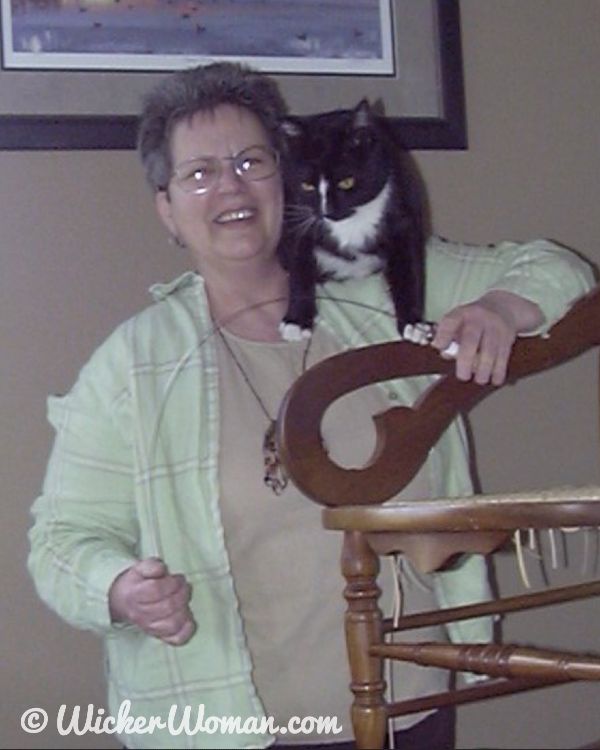
It always surprises the heck out of me, too, because there’s no warning, and he makes no sound before, during, or after that he’s planning a jump.
His jump catches me off guard every time, and he’s not as light as a feather; in fact, he’s far from light at all, just the opposite, at about 12 pounds.
He also goes berserk every once in a while, running around chasing windmills and whatnot!
And of course, my chair caning feline helper is always sticking his nose in where it doesn’t belong.
Just like he’s doing in the picture below, where he’s climbing into one of my large antler baskets.
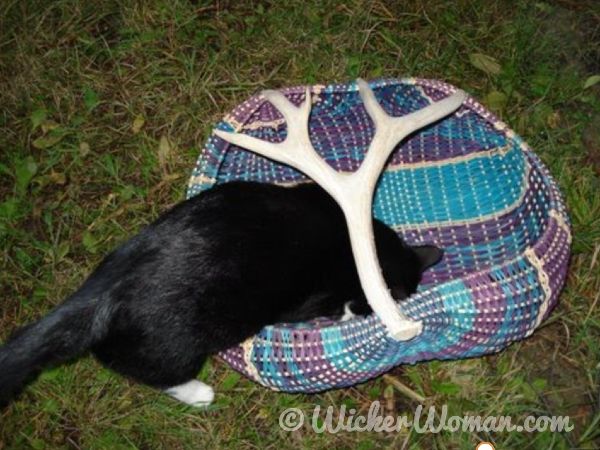
What a squirrel he is, but boy, do I enjoy having my chair caning feline helper around, keeping me company in my wicker repair shop. Even if he does get in the way sometimes.
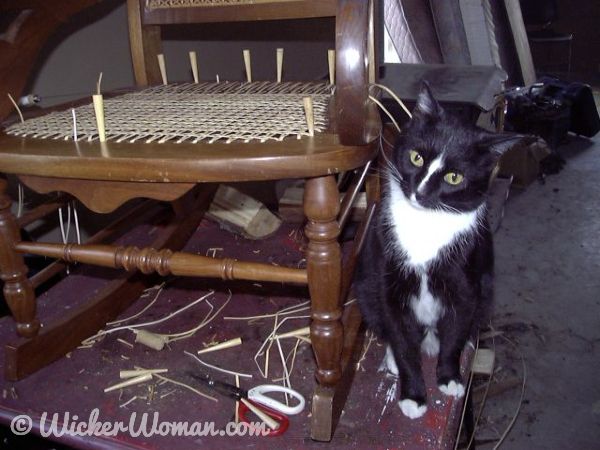
My black and white feline helper gets into my cane and reed strands and loves to play with any dangling pieces or even untied coils.
When I leave the shop and he’s still in there, he will curl up on the seat of any chair I’ve been working on and take a nap, purring away, until my return.
My husband is not a cat lover, so eventually, I found another home for Don Gato with a friend in Minneapolis. She kept him and loved him for another 15 years, until he passed away of old age.
Do you have a chair caning feline helper in your studio, too? What gender, age, and color is your feline?

What are your thoughts about this blog post?
Leave your comments below and share with your social networks!
~~Live Well, Laugh Often, Love Much ~~
Happy Weaving, until next time!




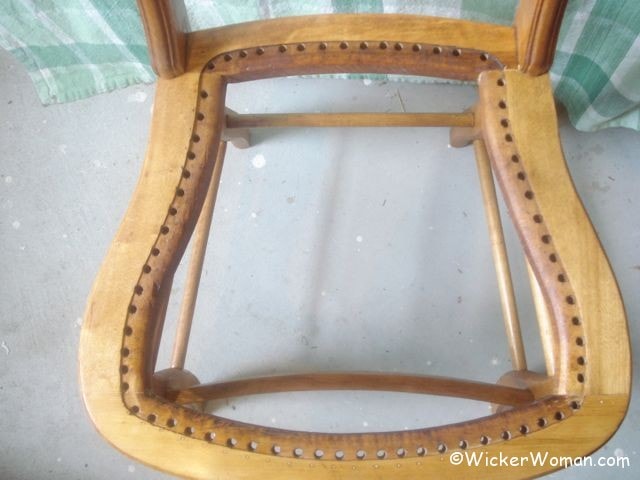
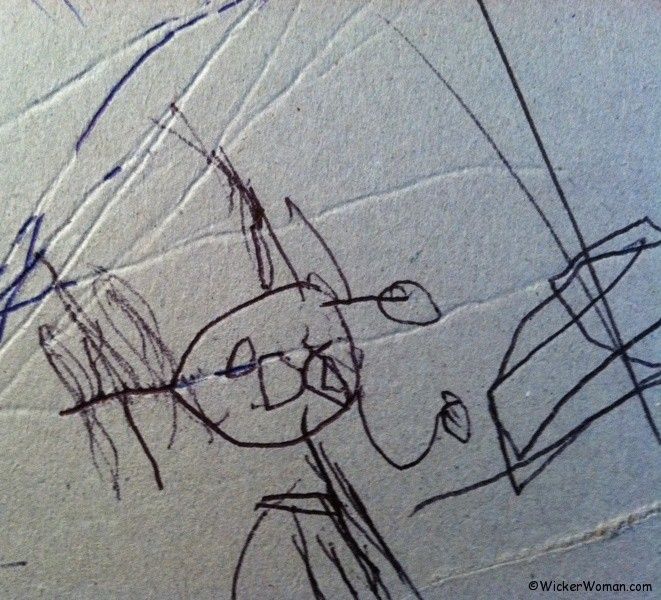
Where can I go to purchase an English caning needle? I’ve seen caning needles on many websites but I would assume they are not the ‘English’ ones.
I have been reading about hand caning chairs and have one I am about to try for the first time. It seems like this needle would be a big timesaver.
Hi David,
I use the flat English caning needles frequently on my hole-to-hole cane chairs and the round American caning needle on the porch cane or binder cane chairs. You can purchase the English caning needles from Peerless Rattan, which you can find on my Cane and Basket Supplies Directory. Glad I could help, let me know what you think after you’ve used it for a while.